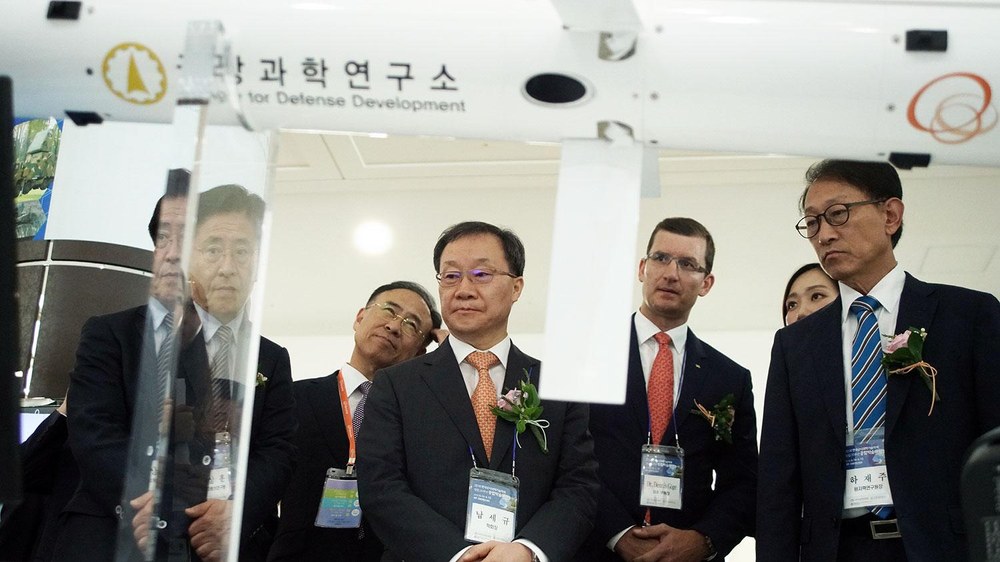DLR opened the KIMST 2018 Conference and Exhibition with a keynote speech

On 14 June 2018, DLR opened Korea's largest conference and exhibition in the area of defence science and technology with a keynote speech from DLR's Executive Board Representative for Defence and Security Research, Dennis Göge. The 20th conference of Korea's Institute of Military Science and Technology (KIMST) was held in Jeju Island from 14 to 15 June, in the Jeju International Convention Center, and attracted more than 1500 participants with more than 1100 paper presentations.
This year's KIMST was jointly organised with DLR's cooperation partner, the Agency for Defence Development (ADD), and Hanyang University. For the first time ever, KIMST 2018 was held together with specialists from the security domain, including the Korean Atomic Energy Research Institute, in order to make use of civilian technologies for strengthening Korea's defence capabilities through academic research and interaction between related organisations. As a starter to kick-off the discussions, Dennis Göge presented actual dual-use topics from DLR’s research portfolio which might have a 'Game Changing' effect with regard to future military operations as well as daily life applications. "The use of georeferenced data will help military forces to better plan and train for future missions. On the other hand, such data will be needed in order to realise the digitalisation of several daily life applications in the civilian world," commented Göge.
Several special sessions were set up for integrating Korean national research and development capabilities to take defence science and technology to the next level. Papers on the fields of autonomy, special materials, sensing and super intelligence were presented and discussed. In order to provide at-a-glance views of advanced Korean military technologies, a total of 46 defence companies displayed their own research and development outcomes.
About defence and security research
DLR's defence and security research programme plans and controls all research and development activities relevant to defence and security in coordination with its partners in government, science, industry and international organisations. In this respect, the cross-sectoral field of defence and security research unites core competencies from established DLR programmes in aeronautics, space, energy and transport. In total, over 20 DLR institutes and centres pursuing security-relevant work contribute to the development, testing and assessment of technologies, systems and concepts, as well as the analysis and evaluation of their capabilities for security-relevant applications.

